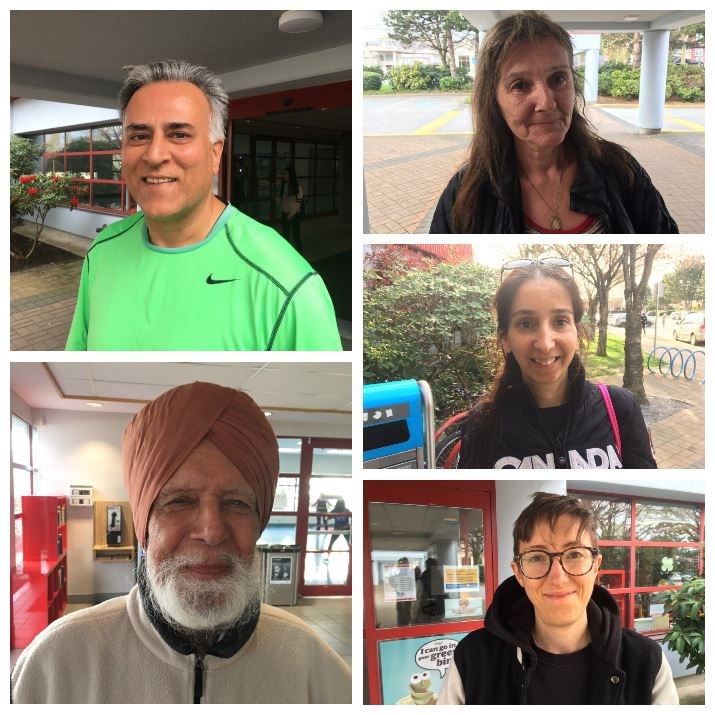Clockwise, from top left:
Jim Purewal:
"I would need to know more. In terms of really banning plastics, that’s a cost-benefit analysis you have to do. You have to measure the impact on consumers and the public of going down that road against what are the benefits to the environment."
Lisa Litto:
"If we can transfer to compostable plastic, that’s a good idea. We can replace plastic in small items but in big items it may not be possible. Obviously you can’t ban plastic, it’s in everything; even cement has plastics; toys; everything is plastic. But if you can create them compostable, go for it."
Wendy Sihata:
"I think it’s a good idea to get rid of plastic, but it’s going to take time for people to adapt to the idea. Even though people say bring your own bag, bring your own cup, they don’t do it. I think it will take a while to adjust. So with compostable bags, people will slowly get the idea."
Ivana McConnell:
"I don’t necessarily think those approaches are mutually exclusive. In some cases an incremental approach is better, depending on our goals at the outset, because sometimes a ban is too big of a step to take initially. But if in some cases an incremental step is harmful, then yes, maybe a ban is OK."
Baldev Aujla:
"There must be an (environmental) standard for manufacturing goods. If [compostable plastic] is not harmful, then there’s nothing wrong. What will come out of it after composting? It’s a chemical and already chemicals are ruining our crops. Some chemicals will remain and transfer to the plants."



